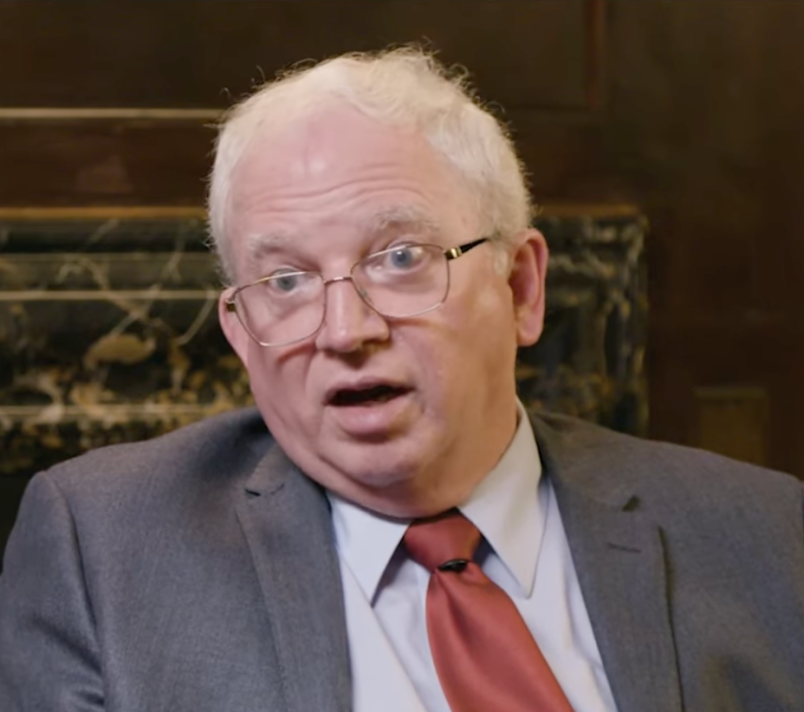I want to return to this revelatory interview with co-conspirator John Eastman, the last portion of which was published Thursday by Tom Klingenstein, the Chairman of the Trumpite Claremont Institute and then highlighted by our Josh Kovensky. There’s a lot of atmospherics in this interview, a lot of bookshelf-lined tweedy gentility mixed with complaints about OSHA regulations and Drag Queen story hours. But the central bit comes just over half way through the interview when Eastman gets into the core justification and purpose for trying to overturn the results of the 2020 election and overthrow the constitutional order itself. He invokes the Declaration of Independence and says quite clearly that yes, we were trying to overthrow the government and argues that they were justified because of the sheer existential threat America was under because of the election of Joe Biden.
January 6th conspirators have spent more than two years claiming either that nothing really happened at all in the weeks leading up to January 6th or that it was just a peaceful protest that got a bit out of hand or that they were just making a good faith effort to follow the legal process. Eastman cuts through all of this and makes clear they were trying to overthrow (“abolish”) the government; they were justified in doing so; and the warrant for their actions is none other than the Declaration of Independence itself.
“Our Founders lay this case out,” says Eastman. “There’s actually a provision in the Declaration of Independence that a people will suffer abuses while they remain sufferable, tolerable while they remain tolerable. At some point abuses become so intolerable that it becomes not only their right but their duty to alter or abolish the existing government.”
“So that’s the question,” he tells Klingenstein. “Have the abuses or the threat of abuses become so intolerable that we have to be willing to push back?”
The answer for Eastman is clearly yes, and that’s his justification for his and his associates extraordinary actions.
Let’s dig in for a moment to what this means, because it’s a framework of thought or discourse that was central to many controversies in the first decades of the American Republic. The Declaration of Independence has no legal force under American law. It’s not a legal document. It’s a public explanation of a political decision: to break the colonies’ allegiance to Great Britain and form a new country. But it contains a number of claims and principles that became and remain central to American political life.
The one Eastman invokes here is the right to overthrow governments. The claim is that governments have no legitimacy or authority beyond their ability to serve the governed. Governments shouldn’t be overthrown over minor or transitory concerns. But when they become truly oppressive people have a right to get rid of them and start over. This may seem commonsensical to us. But that’s because we live a couple centuries downstream of these events and ideas. Governments at least in theory are justified by how they serve their populations rather than countries being essentially owned by the kings or nobilities which rule them.
But this is a highly protean idea. Who gets to decide? Indeed this question came up again and again over the next century each time the young republic faced a major political crisis, whether it was in the late 1790s, toward the end of the War of 1812, in 1832–33 or finally during the American Civil War. If one side didn’t get its way and wanted out what better authority to cite than the Declaration of Independence? There is an obvious difference, but American political leaders needed a language to describe it. What they came up with is straightforward. It’s the difference between a constitutional or legal right and a revolutionary one. Abraham Lincoln was doing no more than stating a commonplace when he said this on the eve of the Civil War in his first inaugural address (emphasis added): “This country, with its institutions, belongs to the people who inhabit it. Whenever they shall grow weary of the existing Government, they can exercise their constitutional right of amending it or their revolutionary right to dismember or overthrow it.”
In other words, yes, you have a revolutionary right to overthrow the government if you really think its abuses have gotten that intractable and grave. But the government has an equal right to stop you, to defend itself or, as we see today, put you on trial if you fail. The American revolutionaries of 1776 knew full well that they were committing treason against the British monarchy. If they lost they would all hang. They accepted that. They didn’t claim that George III had no choice but to let them go.
From the beginning the Trump/Eastman coup plotters have tried to wrap their efforts in legal processes and procedures. It was their dissimulating shield to hide the reality of their coup plot and if needed give them legal immunity from the consequences. The leaders of the secession movement tried the same thing in 1861.
In a way I admire Eastman for coming clean. I don’t know whether he sees the writing on the wall and figures he might as well lay his argument out there or whether his grad school political theory pretensions and pride got the better of him and led him to state openly this indefensible truth. Either way he’s done it and not in any way that’s retrievable as a slip of the tongue. They knew it was a coup and they justified it to themselves in those terms. He just told us. They believed they were justified in trying to overthrow the government, whether because of OSHA chair size regulations or drag queens or, more broadly, because the common herd of us don’t understand the country’s “founding principles” the way Eastman and his weirdo clique do. But they did it. He just admitted it. And now they’re going to face the consequences.






